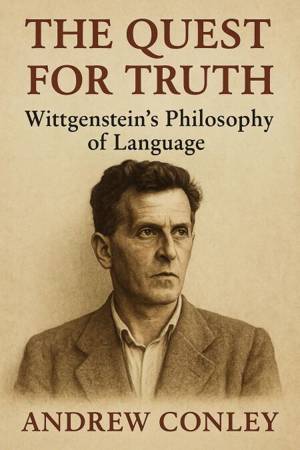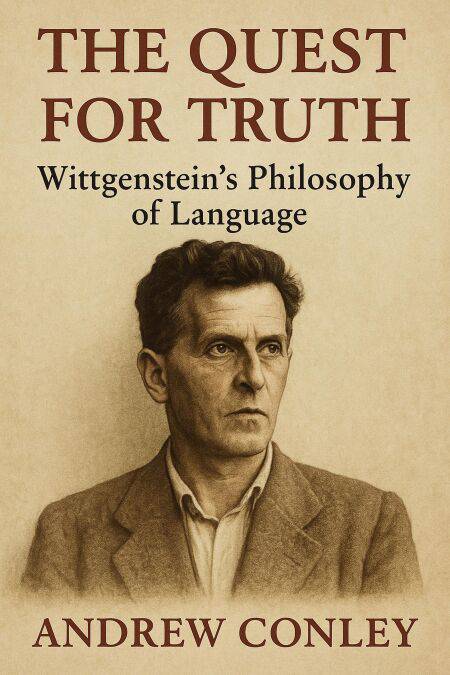
- Afhalen na 1 uur in een winkel met voorraad
- In januari gratis thuislevering in België
- Ruim aanbod met 7 miljoen producten
- Afhalen na 1 uur in een winkel met voorraad
- In januari gratis thuislevering in België
- Ruim aanbod met 7 miljoen producten
Omschrijving
The Quest for Truth: Wittgenstein's Philosophy of Language by Andrew Conley delves into the revolutionary ideas of Ludwig Wittgenstein, exploring how his later work reshaped the philosophy of language. The book examines Wittgenstein's departure from formal systems of meaning, focusing on his concept of language as a social, context-dependent practice. By rejecting essentialism and the traditional search for metaphysical definitions, Wittgenstein introduces the idea that meaning arises from the practical use of language within various "language games." Conley traces Wittgenstein's shift from his early formalist views in the Tractatus to his later therapeutic approach in the Philosophical Investigations, showing how his ideas challenge not only philosophical traditions but also the way we understand truth, knowledge, and human communication. Through deep analysis of key concepts such as "language games," "meaning as use," and "family resemblance," the book explores Wittgenstein's lasting impact on contemporary philosophy, cognitive science, linguistics, and ethics, offering a fresh perspective on how we navigate meaning in our everyday lives.
Specificaties
Betrokkenen
- Auteur(s):
- Uitgeverij:
Inhoud
- Taal:
- Engels
Eigenschappen
- Productcode (EAN):
- 9798230641919
- Verschijningsdatum:
- 17/04/2025
- Uitvoering:
- E-book
- Formaat:
- ePub

Alleen bij Standaard Boekhandel
Beoordelingen
We publiceren alleen reviews die voldoen aan de voorwaarden voor reviews. Bekijk onze voorwaarden voor reviews.









